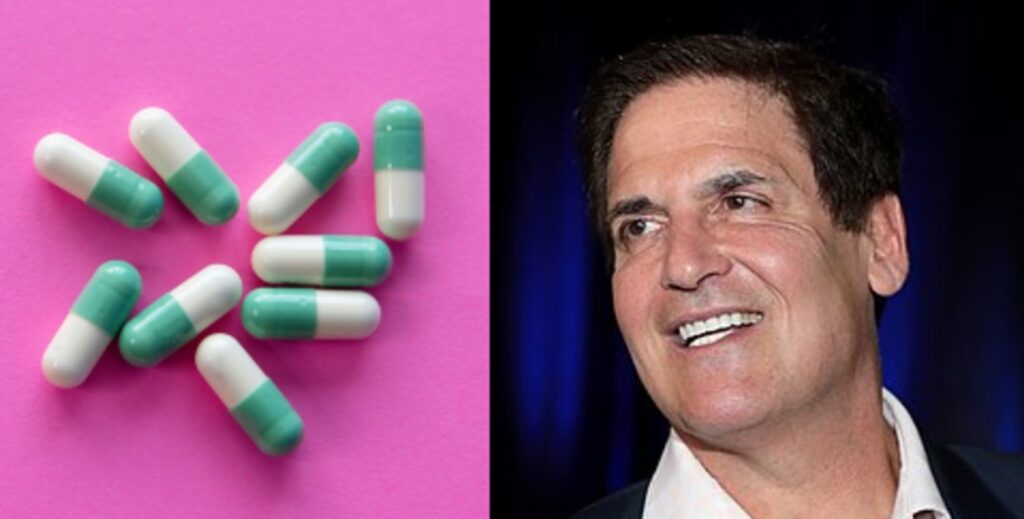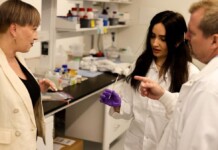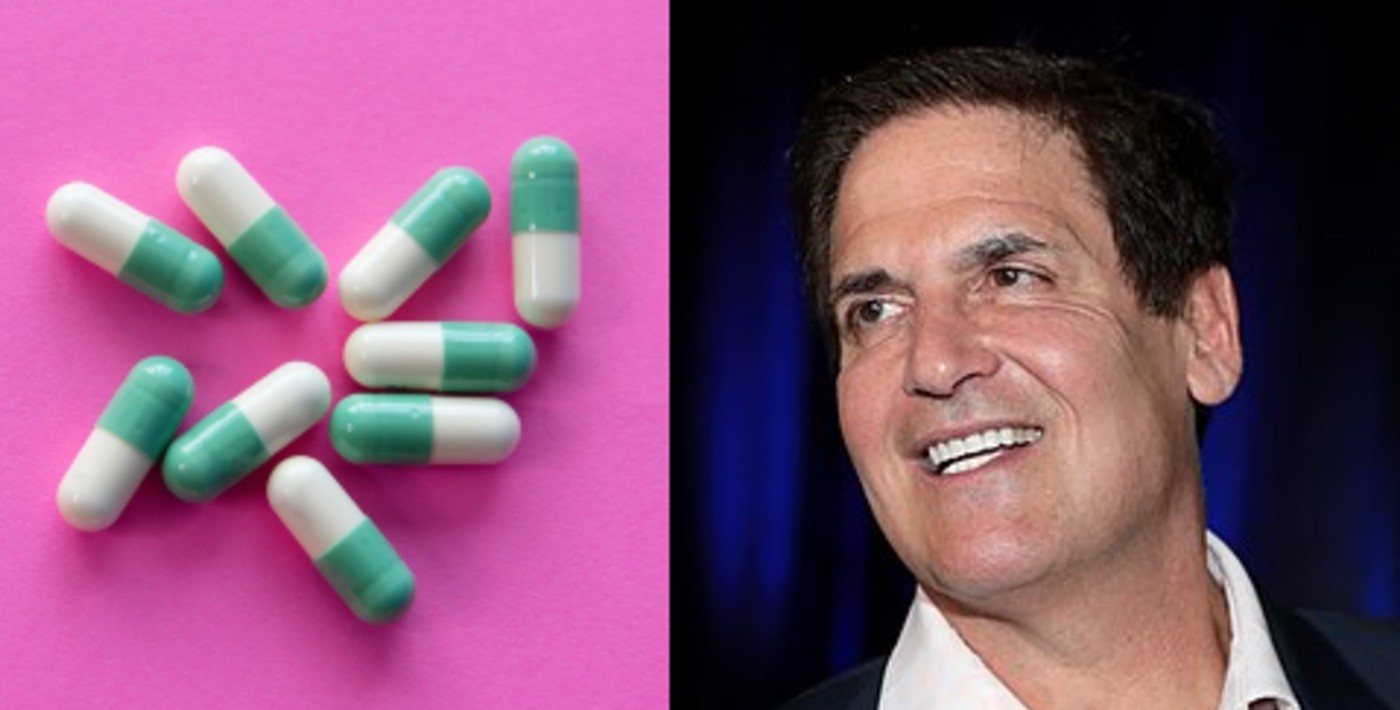After Dr. Alex Oshymansky started a public-benefit company to combat the exploding prices of certain prescription drugs, he attracted a new partner—Shark Tank billionaire investor Mark Cuban.

The Dallas, Texas radiologist started in 2015 with Osh’s Affordable Pharmaceuticals and a million dollars in investment capital. Four years later, the new partnership was moving forward under the name Mark Cuban’s Cost Plus Drug Co, and donating medicine to those in need.
For years, a mixture of FDA demands for approval, and drug company greed which created soaring prices for drugs had begun making Cuban “bleeping mad.”
Now under Cuban’s brand name, the private-label arrangement allows Oshymansky to buy from third party suppliers, take care of the labeling and branding laws himself, and sell it at a serious discount with just a 15% mark-up for the business expenses.
This method allowed the pair to lower the cost of an anti-parasitic medication called albendazole from its normal U.S. price range of $225-$500, down to just 20 bucks.
This proved especially valuable for Baylor College of Medicine, who needed thousands of doses of albendazole to complete a study they were doing on U.S. hookworm infections in the South.
Curing hookworm across the south
“The Germ of the South,” was a catch-all term that characterized a curious lethargy and haziness of the brain, distended bellies, and emaciated shoulder blades, found across the Deep South during the 20th century. Even today, American hookworm infects large numbers of people, particularly children, due to poor sanitation and poverty.
One study done in Lowndes County, Alabama of 24 homes found that 34% of stool samples contained the parasite, which is killed rather quickly by albendazole.
Cuban and Oshymansky donated the first 10,000 doses of the company’s albendazole supply to Baylor and the author of the study, Dr. Rojelio Mejia, so that volunteers from Alabama to New York who test positive for hookworm could immediately purge the parasite from their bodies.
RELATED: First-of-its-Kind Clinical Study Finds That Microdosing THC Can Reduce Chronic Pain
Other drug companies estimated that the number of doses which the two entrepreneurs donated would have cost $2 million—which would have kept the research from being conducted.
“We found it deeply troubling that albendazole is extremely expensive in the United States, and are happy to be able to manufacture it for free for this research and provide it at significantly decreased prices to the rest of the U.S. market,” said Dr. Oshmyansky.
An affordable free-market future
Cuban’s Cost Plus Drugs is aiming for 100 new drug offerings by the end of 2021, all with “no hidden costs, no middlemen, (and) no rebates only available to insurance companies,” the company website says. They want to be “radically transparent” about how much the drug costs to formulate and how much pharmacies will be charged to sell it.
They’re also in the process of constructing their own brick-and-mortar pharmacy in Dallas where they hope to earn a profit on non-pharmaceutical items that can fund the lower cost formulations and offer drugs for rare diseases directly to patients or through outpatient facilities.
As helpful as this will be for American consumers and patients, it could also drive drug companies out of business if they over-charge their customers in the extreme. It’s a dose of free market competition in a nation where millions are crying out for alternatives.
PASS on the Generosity by Sharing This Good Medical News…





















Fantastic. Hope they can also bring the cost of insulin down from like $300/mo…